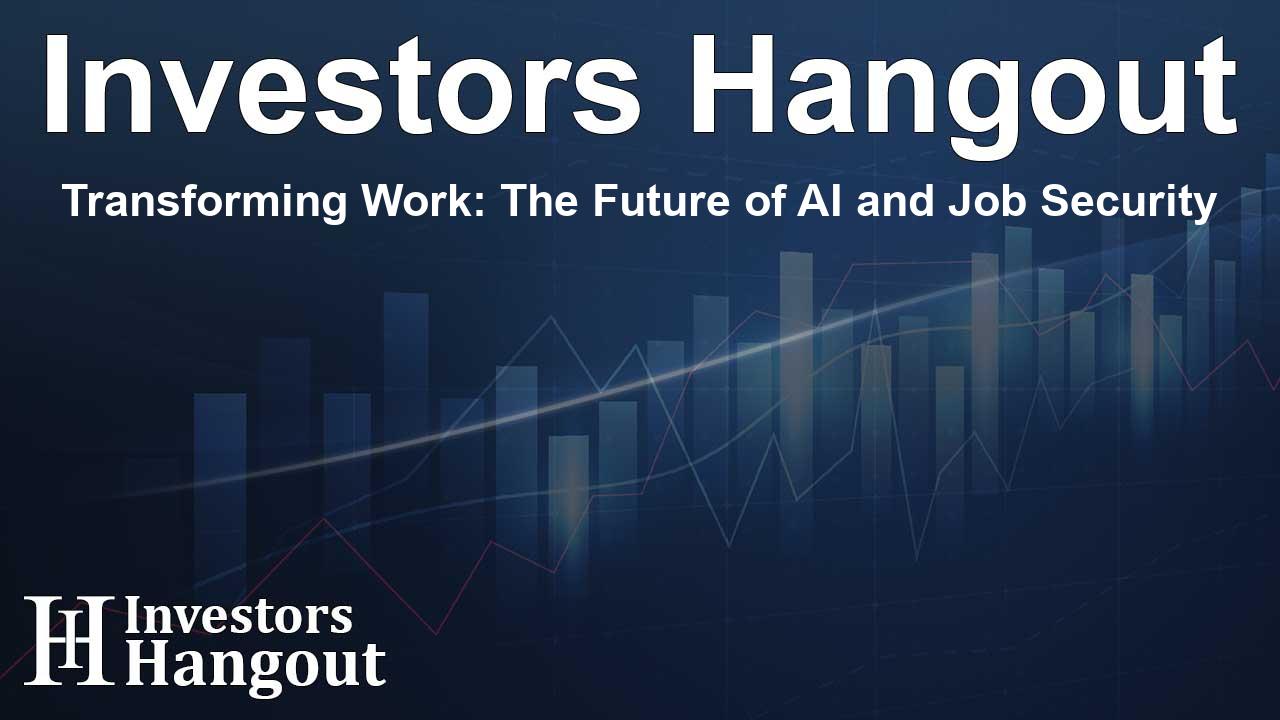Transforming Work: The Future of AI and Job Security

Understanding the AI Employment Landscape
The increasing integration of artificial intelligence (AI) and automation technology is posing significant challenges to the workforce. A recent report by a Senate committee highlights that nearly 100 million positions in the U.S. could face elimination over the next decade. This looming job displacement affects various roles, from fast food workers—at 89%—to sectors including customer service and even some white-collar occupations.
Fast Track to Automation
The move towards what is termed 'artificial labor' sees corporations rapidly adopting AI and robotics for a vast range of tasks, threatening jobs at all levels. In this light, industry giants like Amazon (NASDAQ: AMZN) and Walmart (NYSE: WMT) are investing heavily in these technologies, leading to significant job cuts while notably confirming that AI is a strategy for workforce reduction.
Consequences of Rapid Automation
Senator Bernie Sanders has been vocal about these developments, predicting substantial job losses for both blue-collar and white-collar jobs. His clarion call emphasizes the need for workers to gain a fair share of the benefits that emerge from technological advancements rather than allowing a select few billionaires to reap the rewards.
The Profit Divide: Billionaires vs. Workers
Implementing AI has led to a stark contrast in productivity and wages. Since 1973, U.S. productivity rose by 150%, yet workers' real wages have seen declines. In fact, the wealth gap has widened dramatically, with the top 1% owning more than the bottom 93% combined. This imbalance raises serious questions about income distribution amidst booming corporate profits.
The Role of Wealthy Investors
Wealthy individuals in the tech industry, such as Elon Musk of Tesla (NASDAQ: TSLA) and Mark Zuckerberg of Meta (NASDAQ: META), are heavily investing in AI not primarily for societal improvements but to enhance their own economic power. This trend underscores the necessity for policy adjustments to protect the average worker from the adverse effects of tech-driven job displacement.
Proposed Measures to Protect Workers
The Senate report outlines various ideas aimed at ensuring job security for workers in an increasingly automated environment. Suggestions include the introduction of a 32-hour workweek with no pay reduction, mandatory corporate worker ownership shares of 20%, and enhanced labor laws to support unionization efforts. Additionally, a proposed 'robot tax' could provide funding for programs aimed at supporting displaced workers.
Ensuring Fair Distribution of AI Benefits
Addressing the rising trend of AI is more than just an economic issue; it hinges on equity. Legislators are encouraged to ensure that advancements in technology translate into meaningful benefits for the workforce, not just immense profits for corporate leaders. Future policies must focus on sustaining jobs while encouraging technological growth in a balanced manner.
Frequently Asked Questions
What is the primary concern regarding AI and job displacement?
The main worry is that millions of jobs could be replaced by AI and automation, leading to economic insecurity for many workers.
Which industries are most affected by automation?
Industries such as fast food, customer service, and logistics are particularly vulnerable to automation replacing human labor.
What measures are being proposed to protect jobs?
Proposed measures include a shorter workweek without pay cuts, mandatory worker ownership in companies, and a potential robot tax to support those affected.
Why is wealth inequality a concern in this context?
Wealth inequality increases as productivity rises, leaving most workers behind while a small fraction gains substantial wealth from technological advancements.
How can workers benefit from AI advancements?
Policymaking that prioritizes worker representation, equitable profit sharing, and support for displaced workers can ensure AI benefits reach beyond just wealthy individuals.
About The Author
Contact Dylan Bailey privately here. Or send an email with ATTN: Dylan Bailey as the subject to contact@investorshangout.com.
About Investors Hangout
Investors Hangout is a leading online stock forum for financial discussion and learning, offering a wide range of free tools and resources. It draws in traders of all levels, who exchange market knowledge, investigate trading tactics, and keep an eye on industry developments in real time. Featuring financial articles, stock message boards, quotes, charts, company profiles, and live news updates. Through cooperative learning and a wealth of informational resources, it helps users from novices creating their first portfolios to experts honing their techniques. Join Investors Hangout today: https://investorshangout.com/
The content of this article is based on factual, publicly available information and does not represent legal, financial, or investment advice. Investors Hangout does not offer financial advice, and the author is not a licensed financial advisor. Consult a qualified advisor before making any financial or investment decisions based on this article. This article should not be considered advice to purchase, sell, or hold any securities or other investments. If any of the material provided here is inaccurate, please contact us for corrections.
